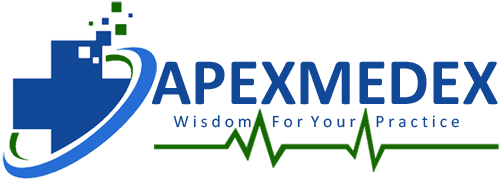In the complex realm of healthcare, medical credentialing holds immense significance for providers seeking collaboration with various payers. While the process may seem straightforward on paper, the reality is quite different for healthcare providers. Credentialing challenges in healthcare are exceedingly common and not uncommon.
Those attempting the credentialing process independently often encounter common obstacles, especially if they lack adequate time, experience, and resources. In this article, we, as the medical credential company, will delve into five prevalent challenges that healthcare providers commonly face during credentialing and provide the optimal method to overcome them.
The Complexity of Medical Credentialing
Healthcare providers aspire for efficient and error-free credentialing processes. However, they frequently encounter common challenges. Let’s delve into these five challenges they encounter during the credentialing process:
Gathering and Organizing All Relevant Documents and Information
This is the most prevalent challenge healthcare providers face during the credentialing process, particularly when seeking to collaborate with multiple payers. It becomes even more intricate and intimidating as providers must comprehend the distinct document requirements of each payer and gather all necessary documents and information. The process is far from straightforward, mainly because different payers may have unique requirements. Gathering information is not as straightforward as acquiring details related to past work, patient reviews, licenses, etc.
Finding and Completing Applications For Credentialing
Many healthcare providers, unfamiliar with the intricacies of the credentialing process, often encounter challenges in acquiring the necessary application forms from the payer they intend to collaborate with. While some payers conveniently provide application forms and related information on their websites, others require direct communication for guidance on accessing the forms. In certain instances, providers may receive application forms via fax. Once the applications are in their possession, the next step involves meticulously organizing all accompanying documents. Providers must diligently attach the relevant documents to each application and proceed to submit them to the payer through online or offline channels. Both finding and completing applications become more challenging as the number of payers increases or if the application and its related information are not easily accessible.
Incomplete Documentation or Inaccurate Information
Despite exercising caution, healthcare providers may inadvertently submit incomplete or inaccurate information and documentation during the credentialing process. This is a prevalent challenge faced by healthcare providers, as these errors can lead to delays in the credentialing process, a scenario detrimental to the provider. In some instances, payers may reject the credentialing application if providers have omitted crucial information. In such cases, providers are required to resubmit the application, ensuring it includes all the necessary relevant information and documentation, which must be correct and complete for successful approval.
Communication Challenges
Communication challenges pose a significant hurdle, contributing to delays in the credentialing process. Providers often face time constraints in credentialing that hinder proactive communication with various payers. This lack of engagement and follow-up post-application submission results in process delays. Moreover, when payer teams identify mistakes, incomplete documentation, or incorrect information in the application, the deficiency may go unnoticed due to insufficient communication and follow-up. As a consequence, providers might learn about these issues later, further impeding the credentialing process, as the delayed discovery prolongs the time needed for issue resolution.
Difficulty in Maintaining Focus on Patient Care
The credentialing process is neither easy nor brief, demanding a significant investment of time and resources from healthcare providers. From understanding requirements to gathering information, filling applications, submitting them, and conducting follow-ups, providers find themselves allocating substantial time to this intricate process. Unfortunately, this intensive involvement means they are unable to dedicate their full attention, time, and resources to patient care, a circumstance that can lead to patient dissatisfaction as providers may struggle to allocate sufficient time for appointments.
Overcoming Challenges with Expert Medical Credentialing
The most effective solution to overcome the aforementioned 5 and other challenges that come during the credentialing process is to outsource the medical credentialing process to an expert company like Talisman Solutions. By doing so, healthcare providers can streamline and smoothen their credentialing process, eliminating errors and challenges. These expert companies specialize in navigating the complexities of credentialing, ensuring a hassle-free experience for providers.
How Expert Credentialing Companies like Talisman Solutions Work:
Thorough Understanding: Expert credentialing companies such as Talisman Solutions are well-versed in the requirements of various payers, ensuring accurate and comprehensive documentation.
Application Assistance: They assist providers in acquiring and completing the necessary applications, simplifying the often intricate process.
Error Resolution: These companies diligently review all submitted documents to identify and rectify any errors or omissions, preventing delays.
Proactive Communication: Expert credentialing teams proactively engage with payers, ensuring swift issue resolution and preventing prolonged delays.
Time Efficiency: By outsourcing, providers can focus on patient care while the credentialing process is efficiently handled by dedicated professionals.
Talisman Solutions goes beyond the conventional approach by assembling a team of experts, well-versed in the intricacies of various payers and armed with extensive experience collaborating with diverse healthcare providers. This adept team comprehends the unique needs of healthcare entities and possesses the acumen to compile the requisite documentation essential for navigating the complexities of the medical credentialing process seamlessly.
Employing cutting-edge technology for submissions and meticulous follow-ups, Talisman Solutions ensures that the provider’s credentialing journey unfolds with maximum efficiency and speed. In instances where errors may arise, their dedicated team acts promptly to rectify any issues, prioritizing a swift resolution.
What sets Talisman Solutions apart is their wealth of experience, an arsenal of resources, and a cohesive team—assets that many healthcare providers, particularly those navigating the credentialing process for the first time or lacking extensive experience, may not possess. This distinction renders their services not only effective but also cost-efficient when compared to attempting credentialing independently.
Conclusion:
The challenges inherent in the medical credentialing process can significantly impede healthcare providers who attempt to navigate these complexities independently. From document gathering to application submission and communication hurdles, the process demands a substantial investment of time and resources, diverting attention from patient care.
By outsourcing credentialing, healthcare providers can overcome these five challenges and others, reclaiming their focus on patient care. They benefit from the wealth of experience, resources, and efficiency that expert companies like Talisman Solutions bring to the table.
The collaborative approach offered by credentialing experts not only streamlines the process but also ensures a seamless and error-free journey for healthcare providers, ultimately contributing to enhanced patient satisfaction and overall operational efficiency.


Recent Comments